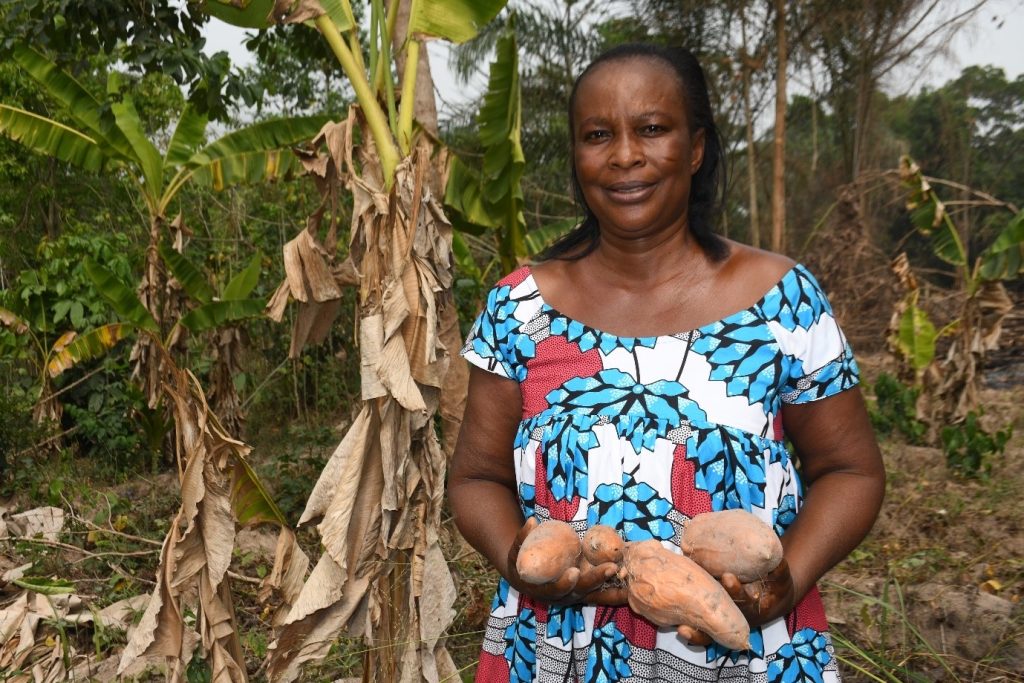Accra, April 15, GNA – Malnutrition has been and continues to be one of the drawbacks of development in developing countries.
Apart from blurring the future of otherwise, vibrant future workforce, it also compels governments to spend a chunk of their earnings into curative activities and consumables at the neglect of infrastructure among other needs.
To help ameliorate their plight the World Vision Ghana has introduced improved feeding programmes in selected communities of the country, under improved feeding for the first 1000 days project..
To avoid its perennial occurrence, some rural communities in the Kassena-Nankana West, Kintampo South, and Sekyere East Districts have used indigenous agricultural practices for decades to produce a wide range of high-quality food such as maize, millet, cassava, pepper, tomatoes, and plantains.
These have helped sustain household food security and livelihoods for decades now.
However, malnutrition (underweight children) and anemia in pregnancy resulting from insufficient intake of micro and macro- nutrients were prevalent.
This often cause malnutrition-associated childhood illnesses and severe anemia in pregnancy, which sometimes lead to infant and maternal deaths or complications in pregnancy and childbirth.
In the Kwabia community in the Kintampo South District, for example, Akurugu Evelyn 26, a mother of 3, nearly lost her first two children to death due to malnutrition.
“My first and second children suffered from acute malnutrition resulting in frequent illnesses and stalled growth and development.
This also affected my productivity and health too”, she said.
“Today, I am happy my third child did not suffer from similar conditions; neither did she (Evelyn) suffer from anemia or childbirth complications she experienced with her previous pregnancies.
“Thanks to the new knowledge on nutrition gained from participating in World Vision’s Improved Feeding for the First 1000 Days Project, “Anytime I went to the clinic, it was for a routine child welfare clinic exercise: weighing and sensitization on pregnancy, baby healthcare and hygiene. I did not experience anemia, and my delivery was safer too.
“I am experiencing the joy of motherhood, seeing my child always looking healthy and happy. His growth and development have been exciting”, she added.
Evelyn is consistent in applying nutrition and feeding practices, child healthcare, and hygiene lessons learned from health professionals through World Vision.
“We are happy the issues of malnutrition and anemia in pregnancy have been justly addressed by World Vision’s IFP project”, she said.
As an organization dedicated to improving the lives of children and women, World Vision Ghana implemented Improved Feeding Practices (IFP) for the First 1000 Days Project in 70 communities in the Kassena-Nankana West, Kintampo South, and Sekyere East Districts, where malnutrition and anemia in pregnancy cases were high.

Using an innovative approach, the project addressed challenges by introducing new skills and knowledge in supplementary feeding, child healthcare and hygiene through advocacy and training.
“I left child healthcare to my wife solely previously. That has since changed because of the orientation I received from World Vision. Now I support my wife to manage our children’s health, hygiene and education. I take our child for weighing, and I am not ashamed of it any longer”, said Awuni James.
Men’s participation in child healthcare and pregnancy management is a significant change the IFP project has achieved.
Aside from this, a significant improvement in the quality of health service delivery in all partner health centers, and in household feeding practices and an increase in the intake of macronutrients by children and pregnant mothers have resulted in better child growth and birth outcomes.
These achievements were realized because of nutrition skills training and intense advocacy for the consumption of orange-fleshed sweet potatoes (OFSP), poultry products, Koko Plus, and green leafy vegetables.
In addition to this, the project also provided certain medical equipment and capacity building for some health staff.
This boosted their efficiency and enhanced the delivery of health services to babies and pregnant women.
And through radio campaigns, the project reached out more than 11000 women and men with nutrition and child health messages.
All of these have significantly resulted in an increased intake of nutritional supplements among children aged 6–23 months, improved quality child healthcare delivery, and contributed to better nutrition practices, as well as increased antenatal care (ANC) attendance rates by pregnant women, promoted exclusive breastfeeding practices, and improved household feeding practices in the project communities, all of which have led to better child health and birth outcomes.
The IFP project is funded by the Japan Social Development Center through the World Bank.
GNA